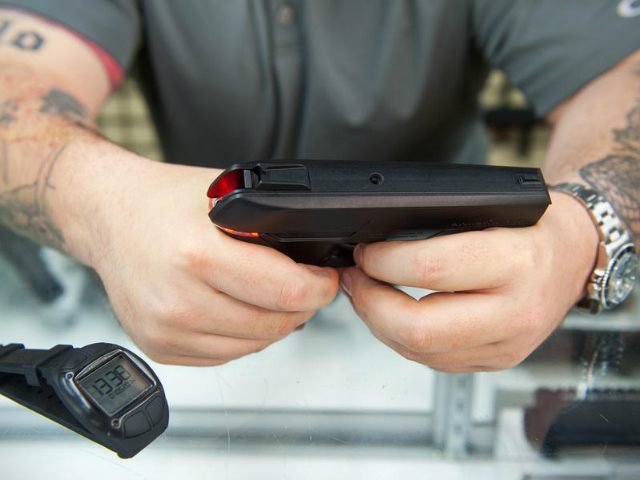In a Los Angeles Times op-ed, tech author Jon Stokes pointed out numerous reasons smart guns and smart gun configurations “would actually make us less safe.”
According to Stokes, the primary reason for the reduction in safety is that “any integrated electronic locking mechanism will necessarily decrease a gun’s reliability by introducing more points of failure.” Whereas a traditional gun might fail to fire because of a bad round of ammo or a misfeed (in a semiautomatic), smart guns still possess these same reasons for failing to fire, along with many new ones, including battery life, the risk of short circuit, and the opportunity for the locking technology to be “jailbroken.”
Stokes points out that the introduction of many new reasons for a failure to fire ends up hurting the one thing most important to gun owners: reliability.
He wrote:
Gun owners are terrified of anything that might make their guns less reliable. And when they consider the frequency with which their $700 smart phone’s fingerprint scanner fails when presented with a clean, dry, perfectly-positioned thumb, they rightly conclude that putting any type of electronic lock on their Glock will likely make them less secure, not more.
Stokes intimates that many people who talk about smart guns as some kind of cure-all for gun violence do so without really understanding how insecure many so-called secure technologies have proven to be. For example:
Every piece of locked-down consumer technology that has ever been introduced–from the DRM schemes that encrypt Blu-ray disks to the software locks intended to keep users from installing illicit software on their iPhones–has been “jailbroken” and can be defeated by anyone with a little time and access to YouTube.
A concealed carry permit holder is ultimately carrying a handgun for safety–for his own safety and the safety of his loved ones should an evil or demented person attack. And in the split second when a normal day condenses down to a series of events that could mark one’s final day, the last thing he should have to worry about is whether the batteries in his gun are fresh or whether the signal his watch sends to activate the gun has been jammed.
How would it feel to be under duress with a gun that will not fire because the biometric reader fails to recognize a palm print, for whatever reason?
These are the things that concern Stokes. These are the reasons he believes smart guns and many smart configurations “would actually make us less safe.”
Follow AWR Hawkins on Twitter: @AWRHawkins. Reach him directly at awrhawkins@breitbart.com.

COMMENTS
Please let us know if you're having issues with commenting.